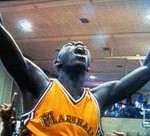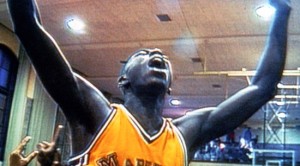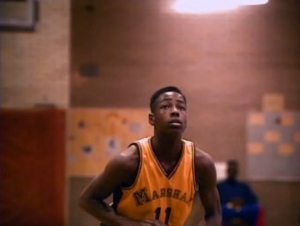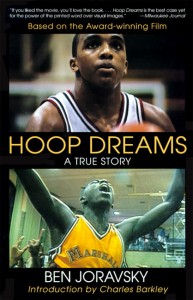Hoop Dreams Priorities
The 1994 documentary film “Hoop Dream” directed by Steve James portrays the story of two African American boys, William Gates and Arthur Agee, in the pursuit of their dream, becoming a professional basketball player. In the beginning, both of the boys display an amazing athletic talent while in middle school. Due to this, a scout from Westchester, Illinois recruits the teenagers to attend the prestigious school of St. Joseph High School. St. Joseph is a private school with an extremely recognizable basketball program particularly known for recruiting and developing Isiah Thomas, a NBA basketball star. To nobody’s surprise, the boys are delighted to attend the school and with their parents permission embark on their new journey.
Through the first academic year, William develops as expected. He plays as desired by the coach, maintains a great academic record, and finds the school is well-tailored to him. Arthur, however, does not achieve St. Joseph’s level of competency. His ability in the basketball court falls short from expectations. When tuition costs rise, the story takes a huge twist. Both of the boys coming from low income families cannot afford the new cost, so the school makes cut-throat decisions. First, they aide William by finding him additional scholarships, trying everything in their power to permit him to stay. Then they present Arthur with two options: pay the other half of the tuition fee or leave. Half a semester passes by and Arthur is forced to leave school losing all he had gained, not just in his basketball dream but academically as well.
As the school presented their decision to Arthur, I found it extremely ironic that the scout told Arthur how he and St. Joseph would do everything in their power to help him accomplish his dream but in the end they destroyed it. At the beginning of the film Earl Smith, the scout from St. Joseph, says that he “helps young people on their road to success.” Yet after one year and a half of a semester Arthur’s road was cut short before any sign of success is seen. The scout knew Arthur and his family were incapable of paying the tuition cost before recruiting him and every school knows that upon early termination of a semester, no credit is awarded to a student so the semester is lost, neither of the options display an indication of aide and help to fulfill a dream. Arthur was cornered to do as the school wanted, leave. He was first treated as a powerful individual with control of his future when in reality he was simply a puppet for St. Joseph to market as they pleased. Arthur’s mother said that the scout offering the basketball players the scholarship to come play with them, “don’t want them to figure out that the story is totally different. I was under the impression I was going to have help in getting him into school, … getting his books, … but yet none of that occurred.” The head basketball coach, Luther Bedford, from Marshall Metro is under the impression that St. Joseph got rid of Arthur because he was not playing as well as they wanted, if he would have, they would have made some type of arrangement for him to stay just like they did for William.
If the scout had never recruited Arthur, he would have transitioned into Marshall Metro High School, the public school he returned to upon leaving St. Joseph with no crushed dreams, no debt, and no lost semester. In the end, the scout did more harm than good to Arthur.






